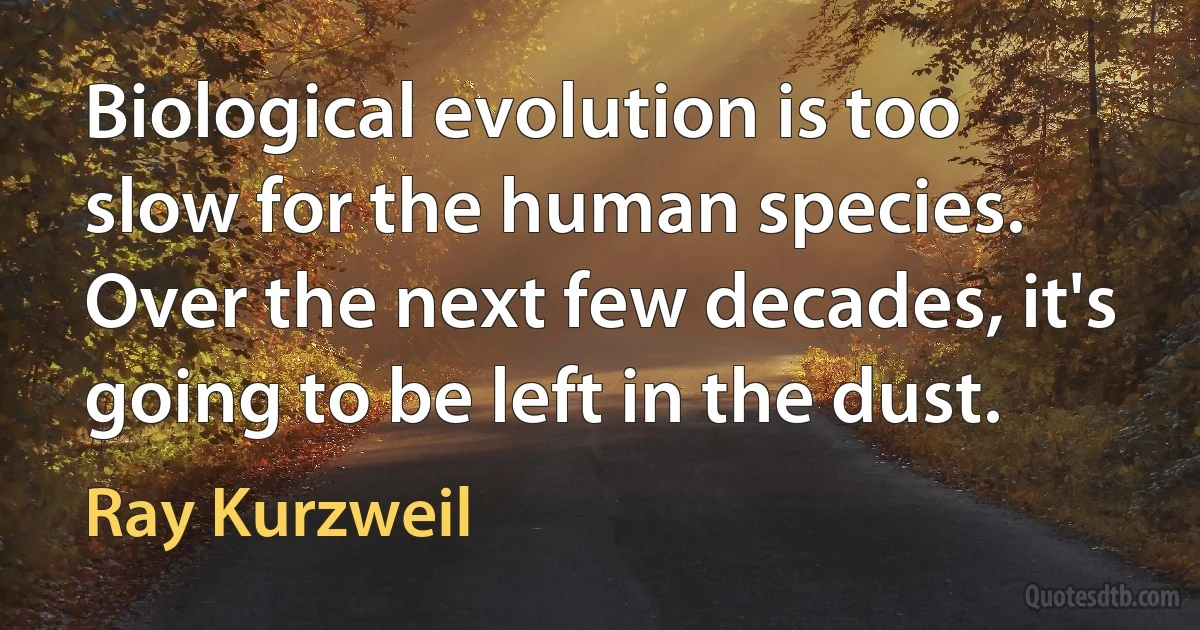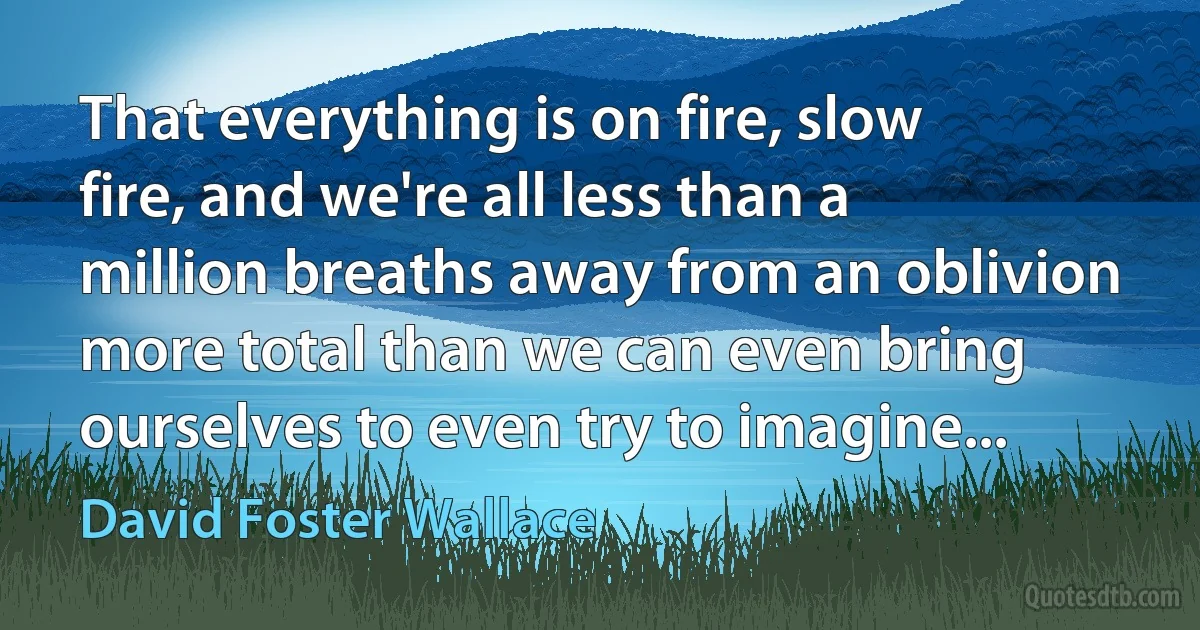Slow Quotes - page 18
We need to recognise that the entire information sector-from music to newspapers to telecoms to internet to semiconductors and anything in-between-has become subject to a gigantic market failure in slow motion. A market failure exists when market prices cannot reach a self-sustaining equilibrium. The market failure of the entire information sector is one of the fundamental trends of our time, with far-reaching long-term effects, and it is happening right in front of our eyes.

Eli Noam
Yeah, they're just too good. But also, this is the worst I've seen Brazil play and start a game. Yes they've started slow in other games, Ian. But, I've never seem them so disorganized. At least France in the quarter-final were nice and tight and compact to try to stop the Germans playing football. Brazil are just all over the place, so open.

Steve McManaman
The dogma of multiculturalism has left a secular Europe very slow to address the looming problem of religious extremism among its immigrants. The people who speak most sensibly about the threat that Islam poses to Europe are actually fascists. To say that this does not bode well for liberalism is an understatement: It does not bode well for the future of civilization.

Sam Harris
Now, as an embittered cynic, I should be almost programmed to vomit all over the screen at the mere sight of this, but instead, I find it strangely moving. You see, as I stare into their happy smiling faces filled with naive joie de vivre, I know they're just blissfully unaware of the crushing despair that awaits them as they venture further into adulthood. The myriad disappointments, the yawning chasms of pain, the slow gnawing descent into physical decay, the sheer unrelenting horror of it all.

Charlie Brooker
As in his public affairs, so in his private life the American rarely prepares himself for the future. He is wholly unwilling to have anything transmitted to him by water that he can get by rail. It irks him to wait the slow process of freighting when there is an express car coming to his town, and if somebody will soon discover how to deliver by aeroplane, that is the way he will obtain what he wants. He never wants it until he wants it, and when he wants it, he wants it at once. The farmer does not look over his machinery in the winter time to ascertain what it needs in the way of repair; but waits until a week or ten days before he needs it and then telegraphs for the repair parts to be sent by express.

Thomas R. Marshall
There's a slow train rumbling east of a place called Eden
Feeling wind-blown and proud as the trees upon the plain
And a stranger's voice talked to me of liberty and freedom
Yeah, it seems like he done gone wrong again
And he wears that hat like shame
Well he tasted the fruit of another
And when his Margie, when she discovered
Said she's gonna love him ten times more
Ain't nobody's business if she do.

Pete Doherty
It's the ultimate Boston transportation. On land...all those slow cars get in the way. There's public transit – the T - but if you're in good shape, it's usually faster to walk. Bicycles aren't bad. But on water, nothing stops you and there isn't anything important in Boston that isn't within two blocks of being wet. The harbor and the city are interlocked like wrestling squid, tentacles of water and land snaking off everywhere, slashed with bridges or canals.

Neal Stephenson
The Mockery Bird regarded him with a roguish eye, head on one side, and took a few slow steps into the clearing. With its head on one side and its foot tentatively raised, it seemed like some sort of lanky, avian dancing master. It stepped forward among the guava stems with a mincing delicacy and then shuffled its wings like someone shuffling a pack of cards. He noticed that it had very long eyelashes which it raised and lowered over its large gaily-sparkling eyes. ... There was another complicated rustle and flurry in the undergrowth and then, projected into the clearing by its own nervous eagerness, came a female Mockery Bird making strange, peeting noises, which became a soothing babble when she caught sight of the male. She went up to her mate and briefly preened his throat feathers as an over-zealous wife will straighten the tie of her consort. ... Here in front of him, cossetting each other, were two birds which were thought to be extinct.

Gerald Durrell
The simplest way that I can understand therapy is that we're born a certain way, we're taught to be something different, and we spend our whole lives trying to unravel it and ultimately align ourselves with who we really are. Life, experiences, traumas -- whatever -- they all add up to make you some altered version of what you are. So there's this battle that goes on between what you are and what you become, and it's been very important for me to unravel what I was taught to be or what I became. and to draw a direct parallel to music -- the closer I get back to being who I really am, the stronger the music gets, because I think what talent I do have is connected to that person, it's not a manipulative process, it's intuitive. You can learn about chords and guitars, but there's a piece of you that makes it individual, and it's been a slow process for me to become whatever it is that I'm supposed to be.

Billy Corgan
With a long slow stride, limping a little from his blistered feet, Bud walked down Broadway, past empty lots where tin cans glittered among grass and sumach bushes and ragweed, between ranks of billboards and Bull Durham signs, past shanties and abandoned squatters' shacks, past gulches heaped with wheelscarred rubbishpiles where dumpcarts were dumping ashes and clinkers, past knobs of gray outcrop where steamdrills continually tapped and nibbled, past excavations out of which wagons full of rock and clay toiled up plank roads to the street, until he was walking on new sidewalks along a row of yellow brick apartment houses, looking in the windows of grocery stores, Chinese laundries, lunchrooms, flower and vegetable shops, tailors', delicatessens. (pp. 23-24)

John Dos Passos
Human sense organs can receive only news of difference, and the differences must be coded into events in time (i.e., into changes) in order to be perceptible. Ordinary static differences that remain constant for more than a few seconds become perceptible, only by scanning. Similarly, very slow changes become perceptible only by a combination of scanning and bringing together observations from separated moments in the continuum of time.

Gregory Bateson



